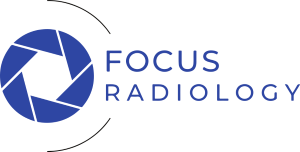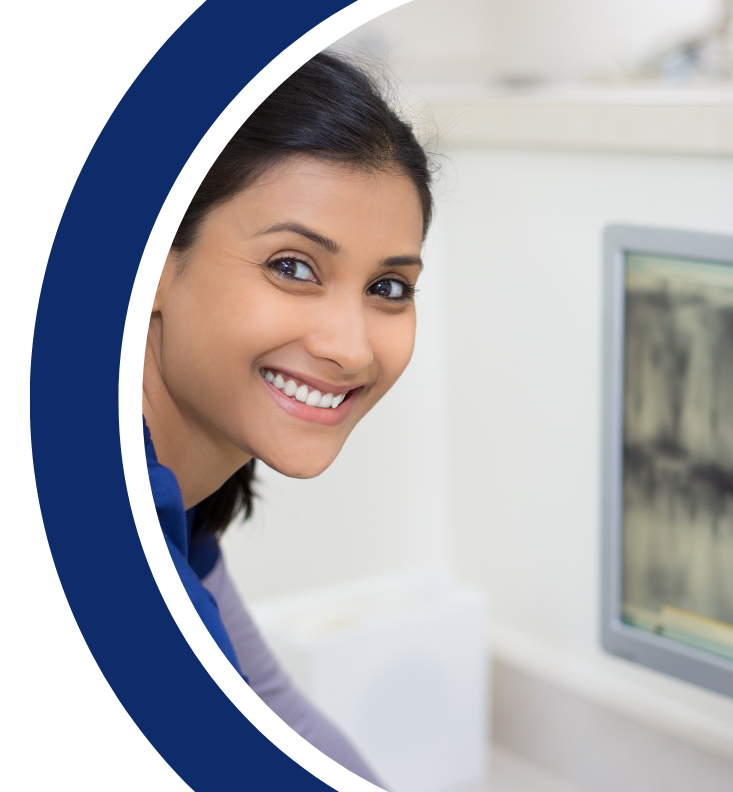Computed Tomography
What is a CT?
Computed Tomography is also referred to as a CT scan. CT is an effective and diagnostic modality which uses x-rays to take images of the body in fine slices. The images are then reconstructed into a 3-dimensional picture, providing an in-depth overview of the area scanned.
How do I prepare for a CT?
Depending on the scan and clinical notes, you will be provided with specific preparation instructions, if necessary, before your appointment. It is important to adhere to any instructions given as they are designed to improve the quality of the scan.
Contrast injection
Some CT examinations may require an injection of iodinated contrast. This helps better visualise blood vessels and organs. For this test, you will be asked to fast prior to your appointment. If you are unable to fast due to medical reasons or due to special dietary requirements, please let the clinic know at the time of booking. If you are required to have a contrast injection, this will be discussed with you by the radiographer (medical imaging technologist).
If you have the following the conditions or take the medications listed below, you are required to bring copies of your most recent blood test results (blood tests must not be older than 3 months):
- Kidney disease
- Diabetes
- Taking medication that contains metformin
Iodinated contrast is safe, but precautions need to be taken if you have poor kidney function and therefore we require your kidney function blood test results.
To prepare for an intravenous contrast enhanced CT:
- Please fast for two hours prior to the scan
- Drink 500ml to 1 litre of water before your appointment
Oral contrast
Some CT examinations of the abdomen require you to drink a contrast solution to better visualise your digestive system. Please fast for this scan. You will be provided instructions on the timing and volume of the contrast that you are required to drink prior to the scan.
Do I need to make a booking for a CT?
Some CT examinations do not require a booking. These include scans of the:
- Brain, Sinus or Facial Bones, Temporal Bones (inner ear)
- Spine (Lumbar, Thoracic and Cervical Spine)
- Upper and lower Extremities: Foot, Knee, Hand, Wrist, Shoulder
What happens during a CT examination?
The radiographer will confirm your details, and depending on the area being scanned, you may be asked to change into a gown.
If you require contrast, this will be discussed with you prior to scanning. For a contrast injection, the radiographer will place a cannula in your arm through which the contrast is injected.
The CT scanner looks like a large doughnut with a hole in the centre, through which a bed moves in and out. You will be asked to lay down on this bed and stay still to ensure the images are clear and diagnostic.
For some scans you may be asked to hold your breath briefly. This will be communicated to you through the in-scanner speaker and instructions can be given in multiple languages.
If your scan requires an intravenous contrast injection, this will be injected by either the radiographer or via an automated pump. Common reactions include a warm sensation throughout the body, particularly around the pelvic region and a metallic taste in the throat. These reactions are completely normal and usually last around a minute.
Once the scan is complete, your cannula will be removed prior to going home.
How long does a CT scan take?
CT examination times can range from 5 minutes to 30 minutes depending on the region scanned. If your scan requires oral contrast, you will also need to drink this over a period of 1 hour prior to the scan.
Are there any side effects from a CT scan?
The overwhelming majority of patients do not experience any side effects from having a CT scan. You will be able to eat and drink as per normal following the scan and resume regular activities.
Radiation exposure
As with any x-ray, a CT scan comes with the risk of exposure to X-ray radiation which is unavoidable. At Focus Radiology, the lowest possible radiation dose is given without compromising image quality. As per State and Federal laws, our CT scanners are regularly maintained by specialist technicians to minimize the risks. Other measures taken to minimize radiation exposure include scanning only the region of interest, and if necessary, covering areas that are especially sensitive to radiation with a lead shield.
Risks associated with radiation exposure include:
- A small increase in the risk of developing cancer. This low risk is outweighed by the benefit of performing the scan itself.
- A small risk of malformation or cancer to an unborn child if you are in your first trimester of pregnancy at the time of the scan.
Contrast exposure
If you are having iodinated contrast, potential after effects will be discussed with you prior. These include:
- Common, mild side effects:
- Metallic taste in mouth
- Warm sensation throughout the body
Rare side effects:
- Allergic reaction
- During the scan, you will be monitored for any signs of an allergic reaction through constant communication with the radiographer.
How do I receive my results?
Our specialist radiologists will report the findings of the scans and send them to your doctor within 24 hours. It is very important to follow up with your doctor so that they can explain the results to you.

We offer accessible services by bulk billing almost all examinations and procedures. To find out more, visit our billing information page.
Book your radiology appointment online – it’s quick, and easy and saves waiting on the phone. Click on the below link and follow the simple steps. Remember to have your referral handy.



















